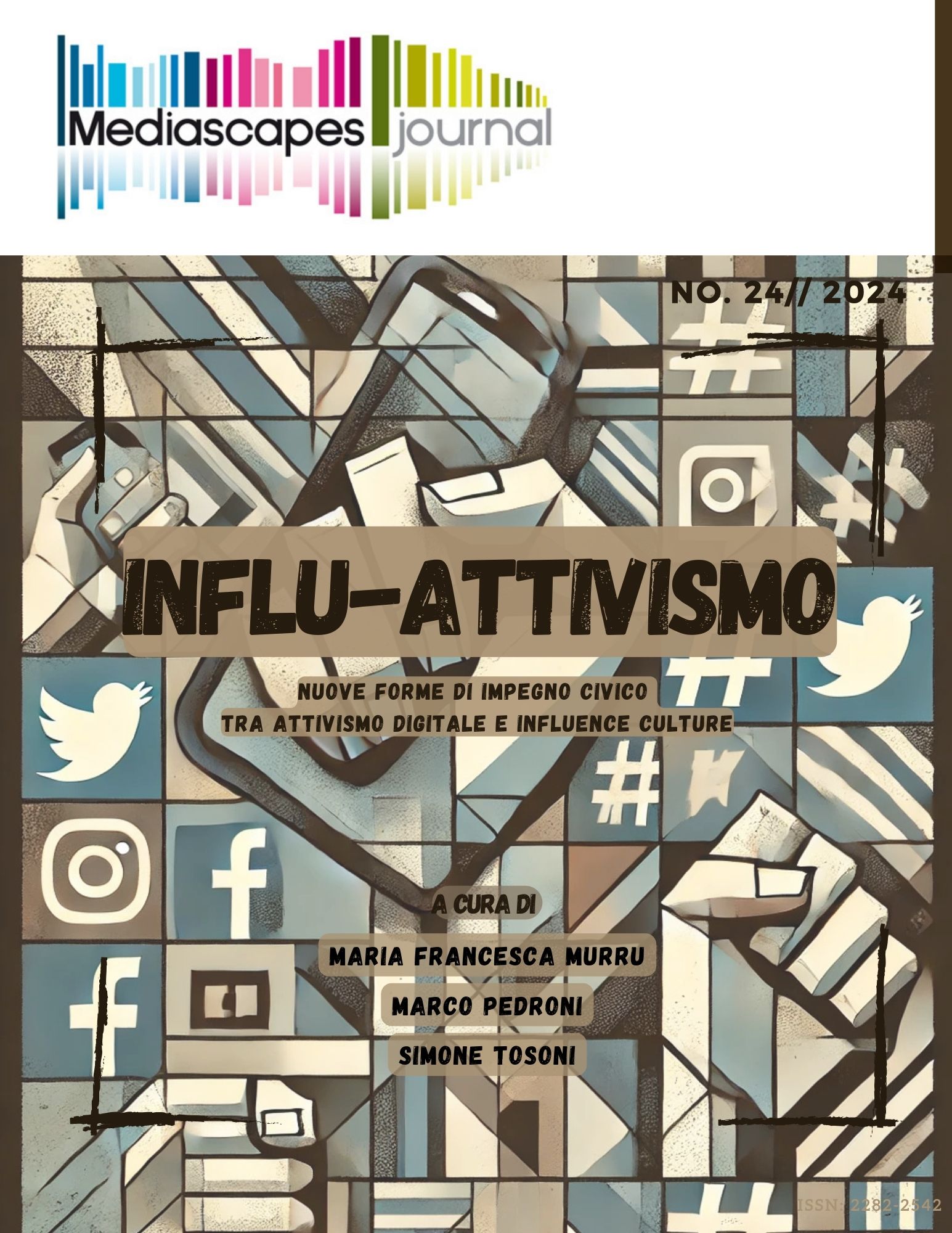#travelforall
Influencer culture, digital activism and marginalized identities
Parole chiave:
influencers, advocacy, activism, disability, social changeAbstract
This paper explores the nexus of influencer culture, marginalized identities, and social change advocacy through a case study of disabled Instagram influencers. Influencers are increasingly engaging with social and political issues and, at the same time, advocacy organizations and institutions – from startup PR agencies to governments – are courting them to reach new audiences. While marketing scholars have extensively researched the economic relevance of influencers, their potential role as advocates is relatively underexplored. To address this gap, this study analyzed six months of content from eight disabled Instagram influencers focused on travel. Travel, a commercially relevant topic, intersects with several disability rights issues. The apparent contrast between disability as a historically stigmatized identity and the expectations of social media culture provides an opportunity to investigate these phenomena alongside marginalization. Building on the situational theory of publics, we examined self-representations of disability, their relationship with hegemonic narratives, the relationship between market-oriented and issue-oriented content, how these influencers address brands, organizations, and online publics, and whether they nudge them toward action. Results show a marked prominence of disability-related content and a frequent engagement with disability advocacy themes. However, advocacy content tends to be kept separate from commercial content and is presented from a personal perspective without appeals to participate in action, with a tone that contrasts with the grievance framework typically used in disability rights activism. As such, innovative forms of advocacy are emerging that prioritize lived experiences as positive and ‘authentic’ – in contrast with dominant disability narratives – but are also limited to the individual level without explicit or implied links to collective mobilization. This highlights the potential and limitations of social media influencers as advocates, suggesting that this phenomenon ought to connect to other activation processes and organized activism to move beyond mere awareness-raising.
##submission.downloads##
Pubblicato
Come citare
Fascicolo
Sezione
Licenza

TQuesto lavoro è fornito con la licenza Creative Commons Attribuzione 4.0 Internazionale.
Gli autori che pubblicano su questa rivista accettano le seguenti condizioni:
- Gli autori mantengono i diritti sulla loro opera e cedono alla rivista il diritto di prima pubblicazione dell'opera, contemporaneamente licenziata sotto una Licenza Creative Commons - Attribuzione che permette ad altri di condividere l'opera indicando la paternità intellettuale e la prima pubblicazione su questa rivista.
- Gli autori possono aderire ad altri accordi di licenza non esclusiva per la distribuzione della versione dell'opera pubblicata (es. depositarla in un archivio istituzionale o pubblicarla in una monografia), a patto di indicare che la prima pubblicazione è avvenuta su questa rivista.
- Gli autori possono diffondere la loro opera online (es. in repository istituzionali o nel loro sito web) prima e durante il processo di submission, poiché può portare a scambi produttivi e aumentare le citazioni dell'opera pubblicata (Vedi The Effect of Open Access).


